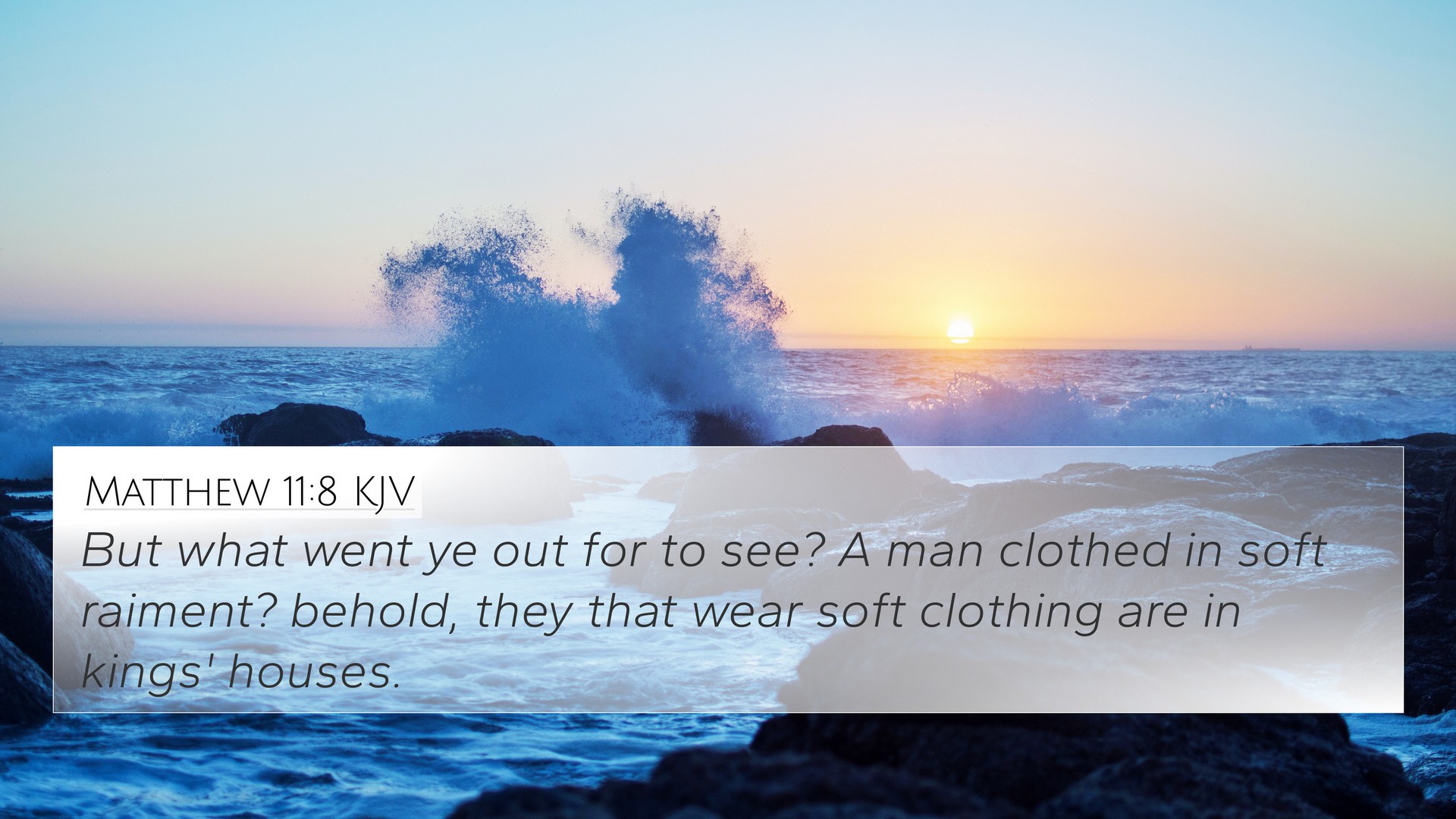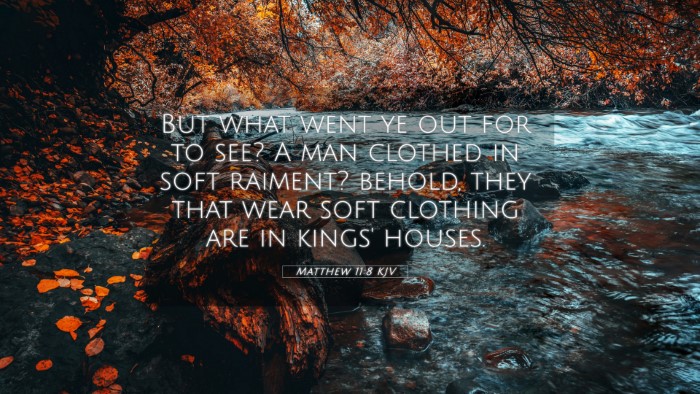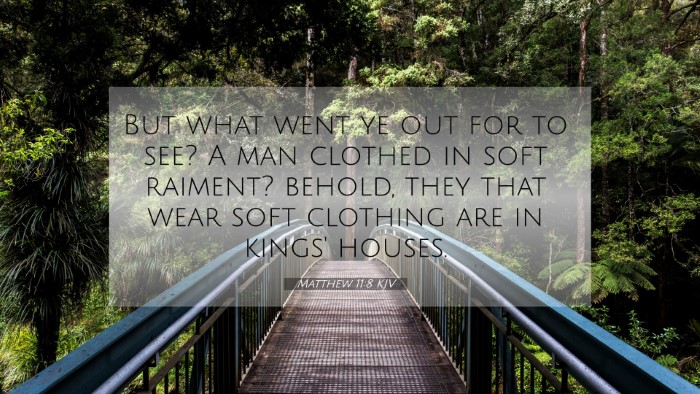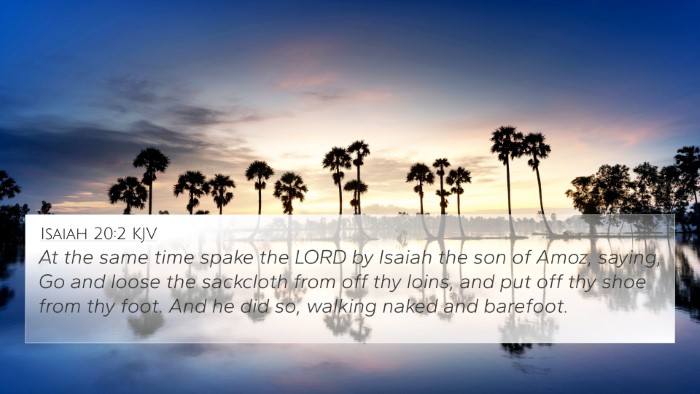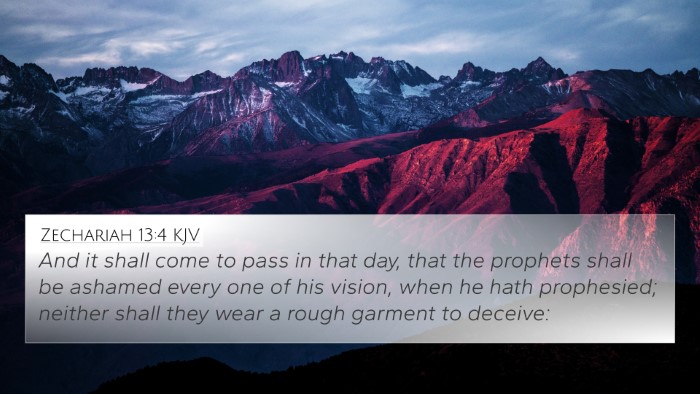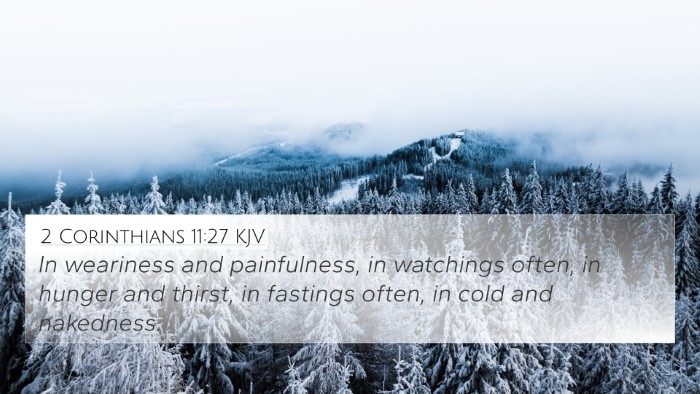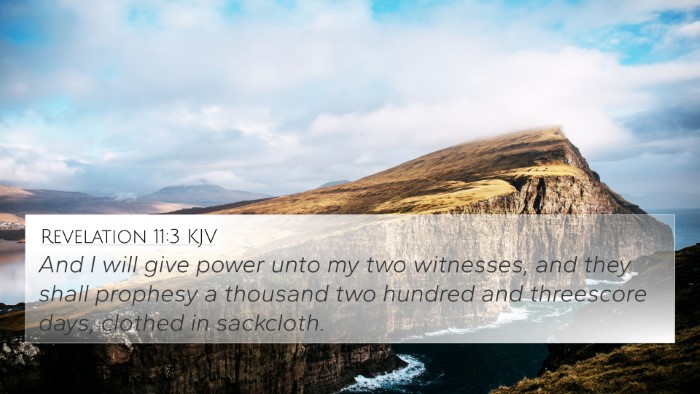Matthew 11:8 Meaning and Interpretation
In Matthew 11:8, Jesus poses a poignant question, asking, "But what went you out to see? A man clothed in soft raiment? Behold, they that wear soft clothing are in kings' houses." This verse draws attention to John the Baptist’s role and the nature of his ministry, emphasizing the contrast between earthly expectations and spiritual reality.
Context and Background
This verse is part of a larger discussion where Jesus reflects on the ministry of John the Baptist (Matthew 11:7-15). John was a unique prophet, clothed in camel's hair, living in the wilderness, and his lifestyle starkly contrasted with the worldly norms. Jesus highlights the significance of John's message and mission, demonstrating that true spiritual authority does not align with societal standards.
Insights from Public Domain Commentaries
-
Matthew Henry:
Henry emphasizes the inquiry's rhetorical nature, indicating that Jesus aims to redirect attention from worldly appearances to true godliness. The rich garments of kings symbolize luxury and comfort, which are at odds with John's austere lifestyle, thus illustrating that true prophets often do not conform to societal expectations.
-
Albert Barnes:
Barnes reflects on the significance of John's rough attire, reinforcing that the virtue and authority of a prophet cannot be measured by outward appearances. He asserts that John's message was one of repentance and preparation for the Kingdom of Heaven, which stands in sharp contrast to the comforts of royal courts.
-
Adam Clarke:
Clarke adds that Jesus' questioning serves as a call to introspection about what individuals seek in spiritual leaders. He suggests that the focus should be on the message and spiritual validity rather than the superficial allure of lavish dress and royal affiliation.
Thematic Connections
This verse establishes thematic connections across various Biblical texts, highlighting the idea that God's messengers often live in humility and simplicity, contrasting with societal expectations of authority and prestige. This theme can be found in:
- Isaiah 40:3 - A voice crying in the wilderness, making paths straight.
- Mark 1:6 - John’s clothing of camel's hair, evoking the same image of humility.
- Luke 7:25 - Jesus reiterates his point about John’s ruggedness, rejecting opportunity from the rich.
- James 2:1-4 - Warning against favoritism and valuing the wealthy over the humble.
- 1 Samuel 16:7 - God looks at the heart rather than outward appearances.
- Matthew 5:3 - The beatitudes introduce the blessedness of the poor in spirit.
- Philippians 2:5-7 - Christ's humility as an example of expecting nothing in worldly terms.
Cross-Referencing Biblical Texts
This verse illustrates the importance of cross-referencing and understanding Scripture in light of itself. Through a comparative Bible verse analysis, we can see how different verses talk about the world’s perception versus God’s chosen vessels. Notable connections include:
- Matthew 11:9 - Discussing John’s role as a prophet.
- Matthew 3:4 - The description of John’s attire further highlights his distinctive lifestyle.
- Luke 1:76-79 - Prophetic declaration about John’s mission.
- Mark 1:1-4 - Establishing the theme of preparation for the Lord.
- John 1:23 - John as the voice of one crying in the wilderness.
- Matthew 21:32 - Linking John's message of repentance to the broader mission of Jesus.
- Galatians 1:11-12 - The Divine calling against human expectations.
Conclusion
Matthew 11:8 invites readers to reflect deeply on what they value in spiritual leadership and authority. As we engage in cross-referencing biblical texts, we encounter numerous connections that enhance our understanding of God’s workings through humble servants. This verse not only emphasizes the contrasting nature of God's messengers but also challenges believers to seek authenticity over appearance in their spiritual pursuits.
